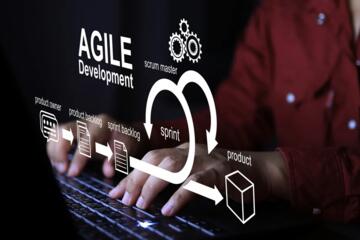Introduction: Why Understanding Development Matters
Unlocking growth begins with understanding the true meaning of development. Many people assume development is just expansion—more revenue, more projects, more outputs. But real development is a structured, long-term process of improving capability, increasing value, and building resilience. Whether we talk about personal growth, organizational strategy, or national progress, development requires clear strategy, continuous learning, and measurable transformation.

This article breaks down development through a practical lens, supported by industry data, well-known examples, and actionable instructions you can apply immediately.
What Development Really Means
Development is the process of creating conditions where sustainable growth becomes possible. It includes:
-
Expanding knowledge and competence
-
Improving systems through innovation
-
Creating value for stakeholders
-
Strengthening long-term resilience
-
Increasing access to opportunity
Development vs. Growth: Key Differences
Growth is quantitative.
Development is qualitative.
Growth focuses on:
-
Revenues
-
Production volume
-
Population size
-
Short-term performance
Development focuses on:
-
Skills
-
Culture
-
Efficiency
-
Sustainability
-
Innovation
A company like Rakuten, for example, experienced massive user-base growth. But its long-term dominance comes from investment in ecosystem development: technology integration, employee upskilling, and new service verticals.
The Three Pillars of Modern Development
Modern development depends on coordinated progress across three areas:
-
Personal development
-
Organisational development
-
Societal development
Let’s explore each in detail.
Personal Development: Building Your Capacity to Grow
Personal development is more than motivation—it is a measurable process of improving competency, adaptability, and decision-making.
Why Personal Skills Drive Larger Systems
Research from Harvard Business Review shows that companies with strong internal learning cultures outperform competitors by up to 30% in long-term performance.
Skills create leverage.
Leverage creates opportunity.
Opportunity drives development.
Key Areas of Personal Development
A practical personal development strategy should include:
-
Critical thinking
-
Digital literacy
-
Emotional resilience
-
Communication and leadership
-
Continuous learning
You can start with platforms like Coursera, which provides structured programs created by leading universities and industry practitioners.
Common Personal Development Mistakes
Avoid these traps:
-
Chasing trends without purpose.
-
Setting goals that are too vague.
-
Ignoring measurable skill metrics.
-
Not applying new knowledge in real projects.
How to Build a Personal Development Plan
A simple framework:
-
Identify your long-term goal (career or lifestyle).
-
List required skills to achieve that goal.
-
Measure your current level (beginner, intermediate, advanced).
-
Choose training formats (courses, books, mentorship).
-
Apply the “learn–implement–reflect” cycle weekly.
-
Track results every 90 days.
Organizational Development: Strengthening Systems for Scale
Organizational development transforms internal structures, culture, and processes. Successful companies grow because they refine what happens inside.
Characteristics of Developed Organizations
Developed organizations share:
-
Clear and adaptive strategy
-
Cross-functional collaboration
-
Strong internal communication
-
Continuous training for employees
-
Data-driven decision-making
-
Innovation as a routine process
Brands like Hilton and Microsoft invest heavily in organizational development by training leaders and creating systems that scale globally.
Organizational Development Strategies
Here are practical steps any organization can take:
1. Improve decision-making with data
Use analytics tools such as:
-
Google Analytics
-
Power BI
-
Looker Studio
Data reveals patterns that intuition often misses.
2. Build learning ecosystems
Give employees access to:
-
Skill academies
-
Mentorship programs
-
Internal workshops
-
Certifications
This creates long-term competitive advantage.
3. Strengthen innovation culture
Encourage teams to:
-
Prototype ideas quickly
-
Test small experiments
-
Document lessons learned
-
Share cross-team insights
4. Optimize processes
Use methods like:
-
Lean management
-
Six Sigma
-
Agile frameworks
Even small improvements in workflow reduce cost and boost productivity.
Common Organizational Mistakes
-
Overemphasis on short-term KPIs
-
Lack of internal communication
-
No funding for training and development
-
Slow adaptation to market trends
-
Hiring for speed instead of capability
Societal Development: Creating Conditions for Collective Progress
Societal development includes infrastructure, access to education, healthcare quality, technology, and safety.
Why Societal Development Matters for Businesses and Individuals
Countries with high development indexes provide:
-
Better talent pools
-
Higher-quality institutions
-
Easier business operations
-
Stronger economic stability
The UN Human Development Index (HDI) shows a direct correlation between national development and long-term economic growth.
Components of Societal Development
-
Education systems that support all ages
-
Healthcare access and disease prevention
-
Technological infrastructure for innovation
-
Transparent governance and legal structures
-
Environmental sustainability
Real Case Example: Estonia’s Digital Development
Estonia transformed itself using:
-
Nationwide digital identity
-
E-government services
-
Universal internet access
-
Early digital literacy education
As a result, Estonia became one of Europe’s most competitive digital economies.
Unlocking Growth: A Unified Framework for Development
Development requires alignment across all levels:
1. Invest in knowledge
Knowledge fuels innovation and decision-making.
2. Build strong systems
Systems determine how efficiently you use your skills and resources.
3. Focus on long-term value
Short-term growth without development collapses under pressure.
4. Measure progress consistently
Use indicators such as:
-
Productivity
-
Skill metrics
-
Customer satisfaction
-
Innovation output
-
Environmental impact
5. Encourage collaboration
Teams, companies, and societies grow when information flows openly and effectively.
How to Apply Development Principles Immediately
Here are practical, actionable steps:
For Individuals
-
Take one structured course every quarter
-
Build a portfolio of real projects
-
Improve communication and decision-making
-
Track learning milestones monthly
For Companies
-
Create development roadmaps for each department
-
Conduct quarterly training or workshops
-
Introduce performance dashboards
-
Encourage cross-team communication
For Governments or Communities
-
Invest in digital infrastructure
-
Support local education programs
-
Promote transparent governance
-
Encourage entrepreneurship
Author’s Insight
Development is rarely linear. In my experience working with teams transitioning to digital ecosystems, the biggest breakthroughs came not from large investments but from small, consistent changes: weekly experiments, knowledge-sharing sessions, and tools that helped people work smarter.
Organizations often expect transformation to happen after big decisions. But real development happens quietly—when people grow, processes improve, and ideas spread internally. The challenge is not speed but direction.
Conclusion: The True Meaning of Development
The true meaning of development goes far beyond simple growth. It is a strategic, structured, and sustainable process that strengthens people, organizations, and societies. Development requires continuous learning, innovation, and alignment between long-term goals and daily actions. When applied consistently, it unlocks growth that lasts.






